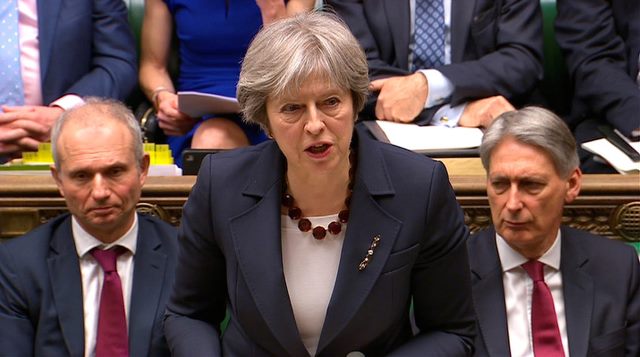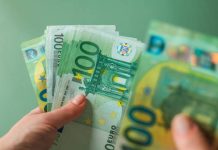Britain will be economically worse off in any scenario outside the European Union, with a no-deal Brexit rendering GDP 9.3 per cent smaller than it would otherwise be in 15 years’ time, the government said Wednesday.
The government’s plans for post-Brexit ties with the European Union would still cost the economy around 3.9 per cent of gross domestic product over 15 years, a report by the Treasury found.
Finance minister Philip Hammond said the departure deal agreed on Sunday between Britain and the EU was the optimum way to minimise the cost of leaving the bloc.
The report comes as Prime Minister Theresa May takes the divorce deal to a sceptical Scotland, where the fishing industry is concerned about EU access to British waters.
May has less than a fortnight to convince hostile MPs to back the deal in a December 11 vote and avoid plunging Brexit into chaos, four months out from Britain’s March 29 departure date.
The report does not exactly model for the deal struck with Brussels, the outlines of which remain vague.
It found that a reduction in EU immigration would cost the economy more than the current free movement rules.
However it leaves the bloc, Britain’s GDP will taper even accounting for the new trade deals it will be able to sign, including with the United States.
“This analysis does not show that we will be poorer in the future than we are today,” May told lawmakers in parliament.
“It shows we will be better off with this deal.”
“Our deal is the best deal available for jobs and our economy that allows us to honour the referendum,” the 2016 vote to leave the EU.
Labour main opposition leader Jeremy Corbyn told May she was running “the most shambolic government in living memory” and May should “accept the reality” that parliament would not back the deal.
“It’s not hard to be the best deal, if it’s the only deal,” he said. “By definition, it’s also the worst deal.”
Hammond insisted that the economy was not the only consideration and controlling Britain’s borders, money and laws also had value.
“We have to look not only at the economy but the need to heal a fractured nation,” the chancellor said.
“There will be a cost to leaving the EU because there will be impediments to our trade. What the prime minister’s deal does is absolutely minimise these costs,” he told BBC radio.
“This is a very modest impact on the overall size of the economy as the optimum way of leaving the EU.”
May runs a minority Conservative government and opposition parties, as well as many of her own MPs, are against the deal.
Some Brexiteers think it keeps Britain shackled too closely to Brussels while pro-EU lawmakers think the terms are worse than staying in the bloc and want a second referendum.
An online Survation poll of 1,030 adults for the Daily Mail newspaper found that 37 per cent supported the deal — up 10 per cent on November 15 — and 35 per cent opposed it, down 14 per cent.
Some 41 per cent wanted MPs to vote for the deal and 38 per cent wanted them to vote it down, in the survey conducted on Tuesday.
If MPs do reject it, Hammond said the government would “consider very carefully how to proceed” through “uncharted political territory”, by studying which MPs voted which way.
“It is very clear what there is not a consensus for in parliament; what is more difficult to concern is what there is a consensus for,” the chancellor said.
Having spent Tuesday campaigning in Wales and Northern Ireland, May will use her visit to Scotland to emphasise that Britain will leave the EU’s Common Fisheries Policy after a transition period scheduled to end in December 2020.
“At long last, we will be ‘an independent coastal state’ again — taking back full sovereign control over our waters, and free to decide for ourselves who we allow to fish in our waters,” May was to say in an address near Glasgow, extracts of which were released by her Downing Street office.
Scottish fishermen are furious they will have to continue obeying EU rules during the transition period, including much-despised quotas and allowing European vessels access to British waters.













